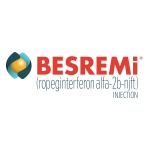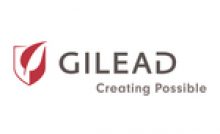PharmaEssentia�s BESREMi� (ropeginterferon alfa-2b-njft) Now Available for the Treatment of People With Polycythemia Vera in the United States


BESREMi� is the only therapy indicated for adults with PV regardless of treatment history
PharmaEssentia introduces holistic services program to support prescribed patients
BURLINGTON, Mass.–(BUSINESS WIRE)–PharmaEssentia USA Corporation, a subsidiary of PharmaEssentia Corporation (TPEx:6446), a global biopharmaceutical innovator based in Taiwan leveraging deep expertise and proven scientific principles to deliver new biologics in hematology and oncology, today announced that BESREMi® (ropeginterferon alfa-2b-njft) is now commercially available in the U.S. to eligible patients with polycythemia vera (PV). BESREMi was approved by the FDA in November as the only interferon for adults with polycythemia vera. BESREMi was approved with a boxed warning for risk of serious disorders including aggravation of neuropsychiatric, autoimmune, ischemic and infectious disorders.
Today marks the beginning of a new chapter in the treatment of PV. Our team is delivering on our goal to bring an innovative solution that may help more people manage not only the symptoms of PV, but target the disease itself to gain durable control with potential to reduce progression over time, said Meredith Manning, U.S. General Manager. We look forward to working closely with U.S. providers to raise awareness of this therapy and help advance treatment goals.
PharmaEssentia SOURCE Now Available to Support People with PV in the U.S.
With the commercial availability of BESREMi, PharmaEssentia is also launching a comprehensive patient support program, which can be found at www.pharmaessentiaSOURCE.com.
The SOURCE program is available for patients prescribed BESREMi and offers a full suite of services designed to help patients start and stay on therapy. Services include insurance navigation support, titration and injection training, and ongoing adherence guidance. The program also includes physician resources, including guides to help patients get started on treatment and ordering processes.
As part of this program, PharmaEssentia will help patients with financial barriers to starting therapy. The company is offering co-pay and co-insurance programs to assist eligible patients who experience financial need. Programs include a $0 copay card for commercially insured patients, temporary product supply in case of insurance delays and/or gaps in coverage, free drug for the uninsured and under-insured as well as assistance identifying additional support as needed.
Weve designed SOURCE with active input from the PV community to simplify the process for appropriate patients to initiate and maintain access to BESREMi and to benefit from its effects over the long-term, added Manning. Our goal is to ensure that any appropriate person with PV who is prescribed BESREMi is able to receive the therapy.
About Polycythemia Vera
Polycythemia Vera (PV) is a cancer originating from a disease-initiating stem cell in the bone marrow resulting in a chronic increase of red blood cells, white blood cells, and platelets. PV may result in cardiovascular complications such as thrombosis and embolism, and often transforms to secondary myelofibrosis or leukemia. While the molecular mechanism underlying PV is still subject of intense research, current results point to a set of acquired mutations, the most important being a mutant form of JAK2.1
About BESREMi
BESREMi is an innovative monopegylated, long-acting interferon. With its unique pegylation technology, BESREMi has a long duration of activity in the body and is aimed to be administered once every two weeks (or every four weeks with hematological stability for at least one year), allowing flexible dosing that helps meet the individual needs of patients. After one year, patients with stable complete hematologic response (CHR) can be treated with BESREMi every four weeks.
BESREMi has orphan drug designation for treatment of PV in the United States. The product was approved by the European Medicines Agency (EMA) in 2019 and has received approval in Taiwan and South Korea. BESREMi was invented and is manufactured by PharmaEssentia.
Important Safety Information
IMPORTANT SAFETY INFORMATION AND INDICATIONS
| WARNING: RISK OF SERIOUS DISORDERS |
| Interferon alfa products may cause or aggravate fatal or life-threatening neuropsychiatric, autoimmune, ischemic, and infectious disorders. Patients should be monitored closely with periodic clinical and laboratory evaluations. Therapy should be withdrawn in patients with persistently severe or worsening signs or symptoms of these conditions. In many, but not all cases, these disorders resolve after stopping therapy. |
CONTRAINDICATIONS
- Existence of, or history of severe psychiatric disorders, particularly severe depression, suicidal ideation, or suicide attempt
- Hypersensitivity to interferons including interferon alfa-2b or any of the inactive ingredients of BESREMi.
- Moderate (Child-Pugh B) or severe (Child-Pugh C) hepatic impairment
- History or presence of active serious or untreated autoimmune disease
- Immunosuppressed transplant recipients
WARNINGS AND PRECAUTIONS
- Depression and Suicide: Life-threatening or fatal neuropsychiatric reactions have occurred in patients receiving interferon alfa-2b products, including BESREMi. These reactions may occur in patients with and without previous psychiatric illness.
Other central nervous system effects, including suicidal ideation, attempted suicide, aggression, bipolar disorder, mania and confusion have been observed with other interferon alfa products.
Closely monitor patients for any symptoms of psychiatric disorders and consider psychiatric consultation and treatment if such symptoms emerge. If psychiatric symptoms worsen, it is recommended to discontinue BESREMi therapy.
- Endocrine Toxicity: These toxicities may include worsening hypothyroidism and hyperthyroidism. Do not use BESREMi in patients with active serious or untreated endocrine disorders associated with autoimmune disease. Evaluate thyroid function in patients who develop symptoms suggestive of thyroid disease during BESREMi therapy. Discontinue BESREMi in patients who develop endocrine disorders that cannot be adequately managed during treatment with BESREMi.
- Cardiovascular Toxicity: Toxicities may include cardiomyopathy, myocardial infarction, atrial fibrillation and coronary artery ischemia. Patients with a history of cardiovascular disorders should be closely monitored for cardiovascular toxicity during BESREMi therapy. Avoid use of BESREMi in patients with severe or unstable cardiovascular disease, (e.g., uncontrolled hypertension, congestive heart failure (? NYHA class 2), serious cardiac arrhythmia, significant coronary artery stenosis, unstable angina) or recent stroke or myocardial infarction.
- Decreased Peripheral Blood Counts: These toxicities may include thrombocytopenia (increasing the risk of bleeding), anemia, and leukopenia (increasing the risk of infection). Monitor complete blood counts at baseline, during titration and every 3-6 months during the maintenance phase. Monitor patients for signs and symptoms of infection or bleeding.
- Hypersensitivity Reactions: Toxicities may include serious, acute hypersensitivity reactions (e.g., urticaria, angioedema, bronchoconstriction, anaphylaxis). If such reactions occur, discontinue BESREMi and institute appropriate medical therapy immediately. Transient rashes may not necessitate interruption of treatment.
- Pancreatitis: Pancreatitis has occurred in 2.2% of patients receiving BESREMi. Symptoms may include nausea, vomiting, upper abdominal pain, bloating, and fever. Patients may experience elevated lipase, amylase, white blood cell count, or altered renal/hepatic function. Interrupt BESREMi treatment in patients with possible pancreatitis and evaluate promptly. Consider discontinuation of BESREMi in patients with confirmed pancreatitis.
- Colitis: Fatal and serious ulcerative or hemorrhagic/ischemic colitis have occurred in patients receiving interferon alfa products, some cases starting as early as 12 weeks after start of treatment. Symptoms may include abdominal pain, bloody diarrhea, and fever. Discontinue BESREMi in patients who develop these signs or symptoms. Colitis may resolve within 1 to 3 weeks of stopping treatment.
- Pulmonary Toxicity: Pulmonary toxicity may manifest as dyspnea, pulmonary infiltrates, pneumonia, bronchiolitis obliterans, interstitial pneumonitis, pulmonary hypertension, and sarcoidosis. Some events have resulted in respiratory failure or death. Discontinue BESREMi in patients who develop pulmonary infiltrates or pulmonary function impairment.
- Ophthalmologic Toxicity: These toxicities may include severe eye disorders such as retinopathy, retinal hemorrhage, retinal exudates, retinal detachment and retinal artery or vein occlusion which may result in blindness. During BESREMi therapy, 23% of patients were identified with an eye disorder. Eyes disorders ?5% included cataract (6%) and dry eye (5%). Advise patients to have eye examinations before and during BESREMi therapy, specifically in those patients with a retinopathy-associated disease such as diabetes mellitus or hypertension. Evaluate eye symptoms promptly. Discontinue BESREMi in patients who develop new or worsening eye disorders.
- Hyperlipidemia: Elevated triglycerides may result in pancreatitis. Monitor serum triglycerides before BESREMi treatment and intermittently during therapy and manage when elevated. Consider discontinuation of BESREMi in patients with persistently, markedly elevated triglycerides.
- Hepatotoxicity: These toxicities may include increases in serum alanine aminotransferase (ALT), aspartate aminotransferase (AST), gamma-glutamyl transferase (GGT) and bilirubin. Liver enzyme elevations have also been reported in patients after long-term BESREMi therapy. Monitor liver enzymes and hepatic function at baseline and during BESREMi treatment. Discontinue BESREMi in patients who develop evidence of hepatic decompensation (characterized by jaundice, ascites, hepatic encephalopathy, hepatorenal syndrome or variceal hemorrhage) during treatment
- Renal Toxicity: Monitor serum creatinine at baseline and during therapy. Avoid use of BESREMi in patients with eGFR <30 mL/min. Discontinue BESREMi if severe renal impairment develops during treatment.
- Dental and Periodontal Toxicity: These toxicities may include dental and periodontal disorders, which may lead to loss of teeth. In addition, dry mouth could have a damaging effect on teeth and mucous membranes of the mouth during long-term treatment with BESREMi. Patients should have good oral hygiene and regular dental examinations.
- Dermatologic Toxicity: These toxicities have included skin rash, pruritus, alopecia, erythema, psoriasis, xeroderma, dermatitis acneiform, hyperkeratosis, and hyperhidrosis. Consider discontinuation of BESREMi if clinically significant dermatologic toxicity occurs.
- Driving and Operating Machinery: BESREMi may impact the ability to drive and use machinery. Patients should not drive or use heavy machinery until they know how BESREMi affects their abilities. Patients who experience dizziness, somnolence or hallucination during BESREMi therapy should avoid driving or using machinery.
- Embryo-Fetal Toxicity: Based on the mechanism of action, BESREMi can cause fetal harm when administered to a pregnant woman. Pregnancy testing is recommended in females of reproductive potential prior to treatment with BESREMi. Advise females of reproductive potential to use an effective method of contraception during treatment with BESREMi and for at least 8 weeks after the final dose.
ADVERSE REACTIONS
The most common adverse reactions reported in > 40% of patients in the PEGINVERA study (n=51) were influenza-like illness, arthralgia, fatigue, pruritis, nasopharyngitis, and musculoskeletal pain. In the pooled safety population (n=178), the most common adverse reactions greater than 10%, were liver enzyme elevations (20%), leukopenia (20%), thrombocytopenia (19%), arthralgia (13%), fatigue (12%), myalgia (11%), and influenza-like illness (11%).
DRUG INTERACTIONS
Patients on BESREMi who are receiving concomitant drugs which are CYP450 substrates with a narrow therapeutic index should be monitored to inform the need for dosage modification for these concomitant drugs. Avoid use with myelosuppressive agents and monitor patients receiving the combination for effects of excessive myelosuppression. Avoid use with narcotics, hypnotics or sedatives and monitor patients receiving the combination for effects of excessive CNS toxicity.
USE IN SPECIFIC POPULATIONS
- Pregnancy: Based on mechanism of action and the role of interferon alfa in pregnancy and fetal development, BESREMi may cause fetal harm and should be assumed to have abortifacient potential when administered to a pregnant woman. There are adverse effects on maternal and fetal outcomes associated with polycythemia vera in pregnancy. Advise pregnant women of the potential risk to a fetus.
- Lactation: There are no data on the presence of BESREMi in human or animal milk, the effects on the breastfed child, or the effects on milk production. Because of the potential for serious adverse reactions in breastfed children from BESREMi, advise women not to breastfeed during treatment and for 8 weeks after the final dose.
- Females of Reproductive Potential: BESREMi may cause embryo-fetal harm when administered to a pregnant woman. Pregnancy testing prior to BESREMi treatment is recommended for females of reproductive potential. Advise female patients of reproductive potential to use effective contraception during treatment with BESREMi and for at least 8 weeks after the final dose.
- Pediatric Use: Safety and effectiveness in pediatric patients have not been established.
- Geriatric Use: In general, dose selection for an elderly patient should be cautious, usually starting at the low end of the dosing range, reflecting the greater frequency of decreased hepatic, renal, or cardiac function and of concomitant disease or other therapy.
Please see accompanying full Prescribing Information, including Boxed Warning.
About PharmaEssentia
PharmaEssentia Corporation (TPEx: 6446), based in Taipei, Taiwan, is a rapidly growing biopharmaceutical innovator. Leveraging deep expertise and proven scientific principles, the company aims to deliver effective new biologics for challenging diseases in the areas of hematology and oncology, with one approved product and a diversifying pipeline. Founded in 2003 by a team of Taiwanese-American executives and renowned scientists from U.S. biotechnology and pharmaceutical companies, today the company is expanding its global presence with operations in the U.S., Japan, China, and Korea, along with a world-class biologics production facility in Taichung. For more information, visit our website or find us on LinkedIn and Twitter.
Forward Looking Statement
This press release contains forward looking statements, including statements regarding the timing of BESREMis availability in the United States, the commercialization plans and expectations for commercializing BESREMi in the United States, and the potential benefits or competitive position of BESREMi. For those statements, we claim the protection of the safe harbor for forward-looking statements contained in the Private Securities Litigation Reform Act of 1995 and similar legislation and regulations under Taiwanese law. These forward-looking statements are based on management expectations and assumptions as of the date of this press release, and actual results may differ materially from those in these forward-looking statements as a result of various factors. These factors include PharmaEssentias ability to launch BESREMi in the United States, whether BESREMi is successfully commercialized and adopted by physicians and patients, the extent to which reimbursement is available for BESREMi, and the ability to receive FDA and other regulatory approvals for additional indications for BESREMi. Any forward-looking statements set forth in this press release speak only as of the date of this press release. We do not undertake to update any of these forward-looking statements to reflect events or circumstances that occur after the date hereof. The information found on our website, and the FDA website, is not incorporated by reference into this press release and is included for reference purposes only.
1 Cerquozzi S, Tefferi A. Blast Transformation and Fibrotic Progression in Polycythemia Vera and Essential Thrombocythemia: A Literature Review of Incidence and Risk Factors. Blood Cancer Journal (2015) 5, e366; doi:10.1038/bcj.2015.95.
© 2021 PharmaEssentia Corporation. All rights reserved. US-BSRM-2100225 11/21
BESREMi and PharmaEssentia are registered trademarks of PharmaEssentia Corporation, and the PharmaEssentia logo and PharmaEssentia SOURCE are trademarks of PharmaEssentia Corporation.
Contacts
Kellie Hotz, kellie_hotz@pharmaessentia.com
Recent Posts
Daphne Announces 2024 Annual Results Revenue and Profit Attributable to Shareholders up 23% and 71% Respectively
Steady Final Dividend of HK$0.02 Per Share Dividend Payout Ratio was Approximately 35% (RMB' million)…
Last November was the time for EU beef in Manila, campaign led by Provacuno
MANILA, PHILIPPINES - Media OutReach Newswire - 26 March 2025 - Within the framework of…
Galaxy Macau™ and SCMP Learn Team Up to Inspire New Educational Pathways at Pioneering Parents’ Talk Held at GICC
Leading Education Experts Gather to Shape Conversations Around Global Education for the Next Generation MACAU…
Insulation Material Y-Warm: A New Era of Thin and Light Winter Apparels
BEIJING, CHINA - Media OutReach Newswire - 26 March 2025 - Even after over a…
Experience the Rich Fishing Heritage of Hong Kong with “Aberdeen 1773”
HONG KONG SAR - Media OutReach Newswire - 26 March 2025 - Hong Kong Fisherman's…
FBS Supports 250 Children in Indonesia During Ramadan
JAKARTA, INDONESIA - Media OutReach Neswire - 26 March 2025 - FBS, a leading global…


